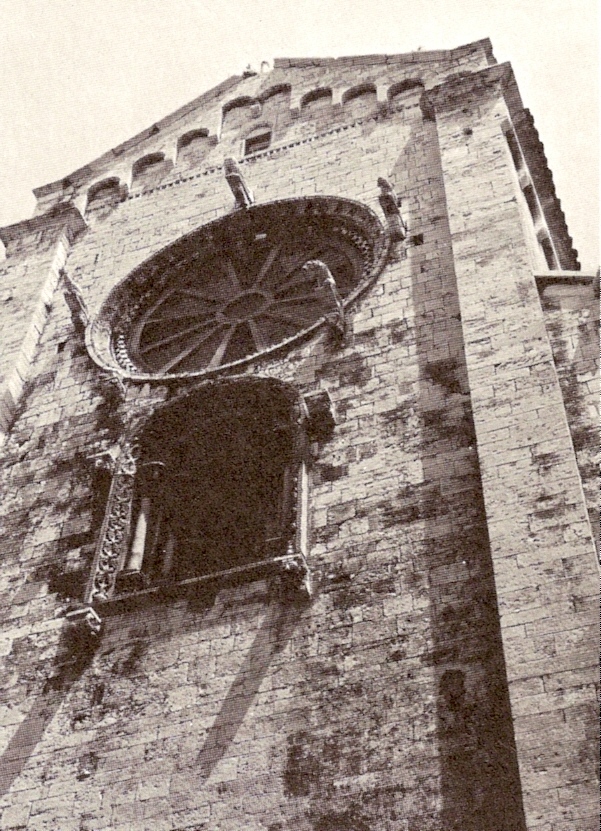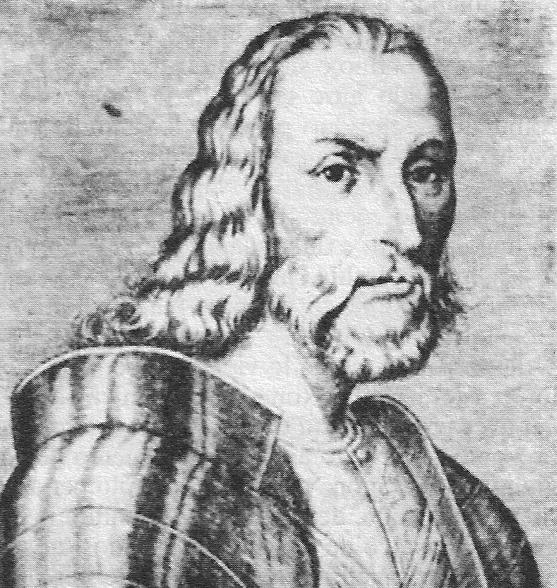|
Challenge Of Barletta
The Challenge of Barletta (Italian: ''Disfida di Barletta'') was a duel fought in the countryside of Trani, near Barletta, southern Italy, on 13 February 1503, during the Third Italian War, on the plains between Corato and Andria. Overview The tournament was provoked by a French knight Charles de la Motte who, after drinking too much of the local wine, made disparaging remarks about the Italians.The Italian Trade Commission 'Rosso Barletta"'' ItalianMade.Com Accessed: December 29th, 2010 It consisted in a mounted tourney between 13 Italians (the most famous being Ettore Fieramosca), who were part of the Spanish army based in Barletta, and 13 French knights who were based in Canosa di Puglia. The Italian knights won the battle, and the French had to pay ransom. Barletta has since acquired the appellation ''Città della Disfida'' (City of the Challenge) as a result. The event inspired a historical novel by the Italian writer Massimo D'Azeglio, '' Ettore Fieramosca'', or '' ... [...More Info...] [...Related Items...] OR: [Wikipedia] [Google] [Baidu] |
Barletta Monumento Disfida Apr06 01
Barletta () is a city, ''comune'' of Apulia, in south eastern Italy. Barletta is the capoluogo, together with Andria and Trani, of the Province of Barletta-Andria-Trani. It has a population of around 94,700 citizens. The city's territory belongs to the Valle dell'Ofanto. The Ofanto river crosses the countryside and forms the border between the territory of Barletta and that of Margherita di Savoia. The mouth of the river is in the territory of Barletta. The area of Barletta also includes part of the battlefield of Cannae. This is a very important archeological site, remembered for the major battle in 216 BCE between the Romans and the Carthaginians, won by Hannibal. The site has been recognised as Città d'Arte (''city of art'') of Apulia in the 2005 for the beautiful architecture. Cannae flourished in the Roman period and then after a series of debilitating Saracen attacks, was finally destroyed by the Normans and then abandoned in the early Middle Ages. Barletta is hom ... [...More Info...] [...Related Items...] OR: [Wikipedia] [Google] [Baidu] |
Soldier Of Fortune (1976 Film)
''Soldier of Fortune'' ( it, Il soldato di ventura) is a 1976 Italian comedy film directed by Pasquale Festa Campanile. The film tells of the challenge of Barletta in a comic and grotesque style. Plot summary In 1503, while wandering southern Italy in search for employment, soldier of fortune Ettore Fieramosca and his troupe - Bracalone (the group's chronicler), Graiano, Romanello und Fanfulla - run into a siege of the city of Barletta and its Spanish garrison by the French army. Despite his moral code of aiding the underdog, his starving men persuade him to seek their fortune with the French; but when the French commanders, Charles La Motte and the Duke of Namur, contemptuously dismiss them, Ettore sides with the beleaguered Spanish. By single-handedly routing a French assault on the city walls, they win the trust of the city's administrator, Gonzalo Pedro di Guadarrama. However, with Barletta's provisions nearly depleted and Spanish reinforcements still underway, the situati ... [...More Info...] [...Related Items...] OR: [Wikipedia] [Google] [Baidu] |
Conflicts In 1503
Conflict may refer to: Arts, entertainment, and media Films * ''Conflict'' (1921 film), an American silent film directed by Stuart Paton * ''Conflict'' (1936 film), an American boxing film starring John Wayne * ''Conflict'' (1937 film), a Swedish drama film directed by Per-Axel Branner * ''Conflict'' (1938 film), a French drama film directed by Léonide Moguy * ''Conflict'' (1945 film), an American suspense film starring Humphrey Bogart * ''Catholics: A Fable'' (1973 film), or ''The Conflict'', a film starring Martin Sheen * ''Judith'' (1966 film) or ''Conflict'', a film starring Sophia Loren * ''Samar'' (1999 film) or ''Conflict'', a 1999 Indian film by Shyam Benegal Games * ''Conflict'' (series), a 2002–2008 series of war games for the PS2, Xbox, and PC * ''Conflict'' (video game), a 1989 Nintendo Entertainment System war game * '' Conflict: Middle East Political Simulator'', a 1990 strategy computer game Literature and periodicals * ''Conflict'' (novel) ... [...More Info...] [...Related Items...] OR: [Wikipedia] [Google] [Baidu] |
Lonely Planet
Lonely Planet is a travel guide book publisher. Founded in Australia in 1973, the company has printed over 150 million books. History Early years Lonely Planet was founded by married couple Maureen and Tony Wheeler. In 1972, they embarked on an overland trip through Europe and Asia to Australia, following the route of the Oxford and Cambridge Far Eastern Expedition. The company name originates from the misheard "lovely planet" in a song written by Matthew Moore. Lonely Planet's first book, ''Across Asia on the Cheap'', had 94 pages; it was written by the couple in their home. The original 1973 print run consisted of stapled booklets with pale blue cardboard covers. Tony returned to Asia to write ''Across Asia on the Cheap: A Complete Guide to Making the Overland Trip'', published in 1975. Expansion The Lonely Planet guide book series initially expanded to cover other countries in Asia, with the India guide book in 1981, and expanded to rest of the world later on. G ... [...More Info...] [...Related Items...] OR: [Wikipedia] [Google] [Baidu] |
Battle Of Cerignola
The Battle of Cerignola was fought on 28 April 1503 between Spanish and French armies outside the town of Cerignola, Apulia, Kingdom of Naples (now in modern-day Italy), approximately west of Bari. The Spanish force under the command of Gonzalo Fernández de Córdoba (''El Gran Capitán'') comprising 6,300 men, including 2,000 ''Landsknecht'' pikemen, 1,000 arquebusiers and 20 cannons, defeated the French force of 9,000 men, mainly gendarme heavy cavalry and Swiss mercenary pikemen, with about 40 cannons, led by Louis d'Armagnac, Duke of Nemours, who was killed during the battle. It was one of the first European battles won by gunpowder weapons, as the attacks by the French cavalry and Swiss pikemen were shattered by the fire of Spanish arquebusiers behind a defensive ditch. Preparations The Third Italian War was re-kindled in late 1502, over disagreements stemming from the secret Treaty of Granada, signed on 11 November 1500. Although it was agreed that Louis XII of Fran ... [...More Info...] [...Related Items...] OR: [Wikipedia] [Google] [Baidu] |
Bartolomeo Fanfulla
Bartolomeo Fanfulla's parents, Domenico Alon and Angela Folli, gave him multiple names: Giovanni or Giovanni Battista (in honour of the Evangelical preacher), Bartolomeo (in honour of Bartolomeo Colleoni) and Titus (name), Tito (in honour of the great Roman emperor). Born in the province of Lodi (but for Francesco Guicciardini, Guicciardini he is allegedly from Parma), Fanfulla almost certainly died 24 February 1525 in the battle of Pavia (1525), battle of Pavia. He had at least four children (Marc’Antonio, Ambrosio, Giorgio and Domenico) and nine grandchildren. He was first a soldier of fortune, then knight and finally captain of a flag between 1499 and 1525. They say of him: In his life he fought on the side of Florence (1499), Spain (from 1503) and empire (from 1515) having as enemies Pisa (in 1499) and France (from 1503 onwards). Together with Ettore Fieramosca he was the main character of the famous battle of Barletta, which on 13 February 1503 saw thirteen Italian warrior ... [...More Info...] [...Related Items...] OR: [Wikipedia] [Google] [Baidu] |
Blason France Moderne
Blason is a form of poetry. The term originally comes from the heraldic term "blazon" in French heraldry, which means either the codified description of a coat of arms or the coat of arms itself. The Dutch term is Blazoen, and in either Dutch or French, the term is often used to refer to the coat of arms of a chamber of rhetoric. History The term forms the root of the modern words "emblazon", which means to celebrate or adorn with heraldic markings, and "blazoner", one who emblazons. The terms "blason", "blasonner", "blasonneur" were used in 16th-century French literature by poets who, following Clément Marot in 1536, practised a genre of poems that praised a woman by singling out different parts of her body and finding appropriate metaphors to compare them with. It is still being used with that meaning in literature and especially in poetry. One famous example of such a celebratory poem, ironically rejecting each proposed stock metaphor, is William Shakespeare's Sonnet 130: :' ... [...More Info...] [...Related Items...] OR: [Wikipedia] [Google] [Baidu] |
Blason Ferdinand Ier De Naples
Blason is a form of poetry. The term originally comes from the heraldic term "blazon" in French heraldry, which means either the codified description of a coat of arms or the coat of arms itself. The Dutch term is Blazoen, and in either Dutch or French, the term is often used to refer to the coat of arms of a chamber of rhetoric. History The term forms the root of the modern words "emblazon", which means to celebrate or adorn with heraldic markings, and "blazoner", one who emblazons. The terms "blason", "blasonner", "blasonneur" were used in 16th-century French literature by poets who, following Clément Marot in 1536, practised a genre of poems that praised a woman by singling out different parts of her body and finding appropriate metaphors to compare them with. It is still being used with that meaning in literature and especially in poetry. One famous example of such a celebratory poem, ironically rejecting each proposed stock metaphor, is William Shakespeare's Sonnet 130: :' ... [...More Info...] [...Related Items...] OR: [Wikipedia] [Google] [Baidu] |
Fabrizio Colonna
Fabrizio Colonna (c. 1450 – 18 March 1520) was an Italian condottiero, a member of the powerful Colonna family. He was the son of Edoardo Colonna and Filippa Conti. Fabrizio was born sometime before 1452. He was married to Agnese da Montefeltro daughter of Federico da Montefeltro, 1st Duke of Urbino, and Battista Sforza. Fabrizio was known as count of Tagliacozzo and grand constable of the kingdom of Naples. During the Italian War of 1499–1504, he played a notable part in the Battle of Cerignola in 1503. He was a general in the Holy League that fought against Louis XII of France from 1509 to 1515, and at the Battle of Ravenna, he commanded the army of the Papal States against France. His daughter was Vittoria Colonna, who was an Italian poet, and a close friend of Michelangelo. His nephew Marcantonio was also a successful general. Fabrizio is the main speaker in Machiavelli's ''The Art of War'' and is referenced throughout the book as an authority on both Classi ... [...More Info...] [...Related Items...] OR: [Wikipedia] [Google] [Baidu] |
Prospero Colonna
Prospero Colonna (1452–1523), sometimes referred to as Prosper Colonna, was an Italian condottiero in the service of the Papal States, the Holy Roman Empire, and the Kingdom of Spain during the Italian Wars. Biography A member of the ancient noble family of the Colonna, he was born in Civita Lavinia, near Velletri (Lazio), in 1452. He was a cousin of Fabrizio Colonna. His first notable action as a military leader was in 1484, when he defended the family castle of Paliano against an assault by the rival Orsini and Riario families. After some other battle deeds, Prospero, who had joined Cardinal Giuliano della Rovere's party, was imprisoned in Castel Sant'Angelo (Rome) by Pope Alexander VI. Once freed, he was soon imprisoned again for his allegiance to Charles VIII of France during his invasion of Italy. In the end, the King of France was victorious against the Pope and entered Rome, backed by Prospero and Fabrizio Colonna, in 1495. During the brief French rule over the Kingd ... [...More Info...] [...Related Items...] OR: [Wikipedia] [Google] [Baidu] |





